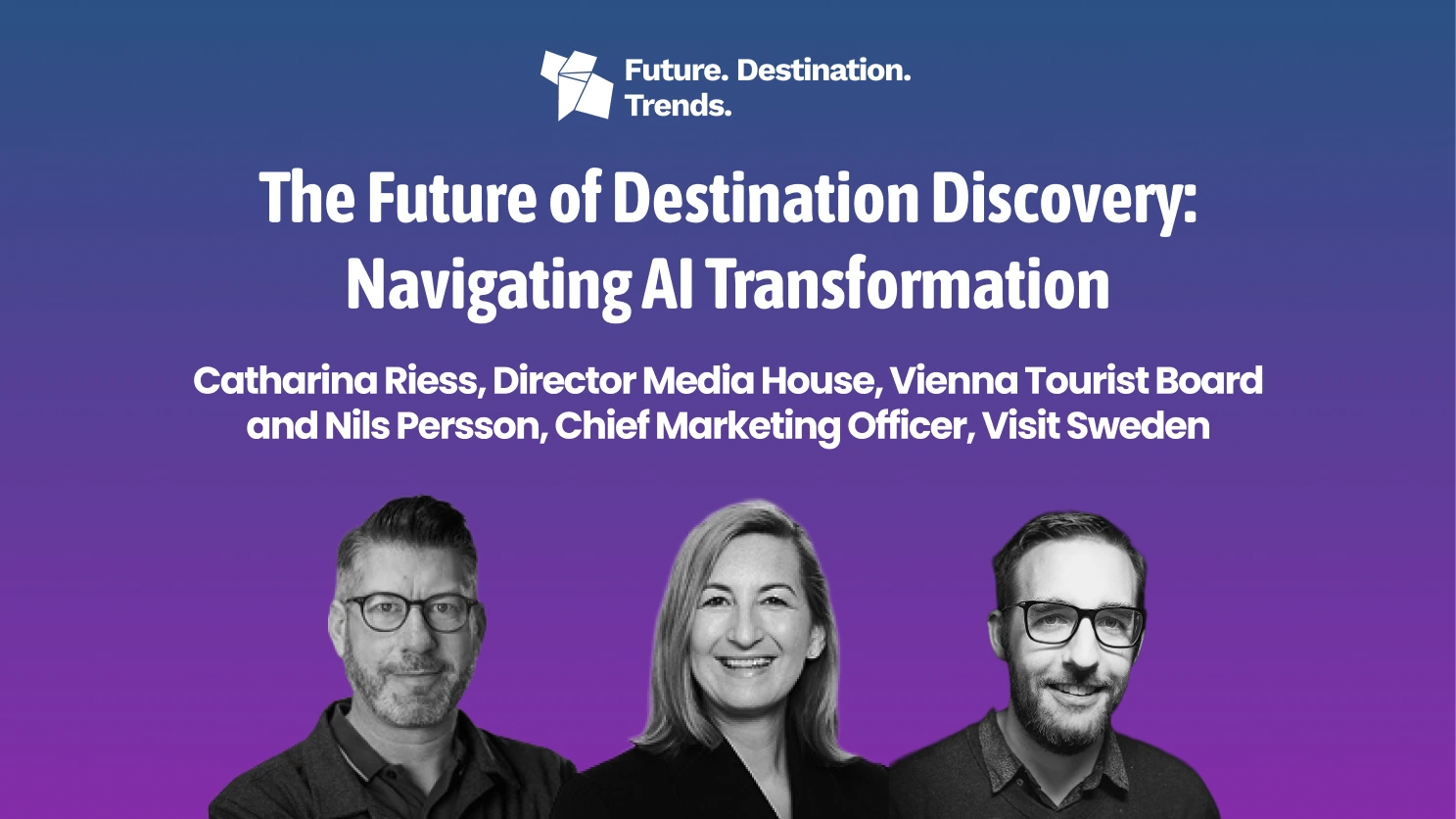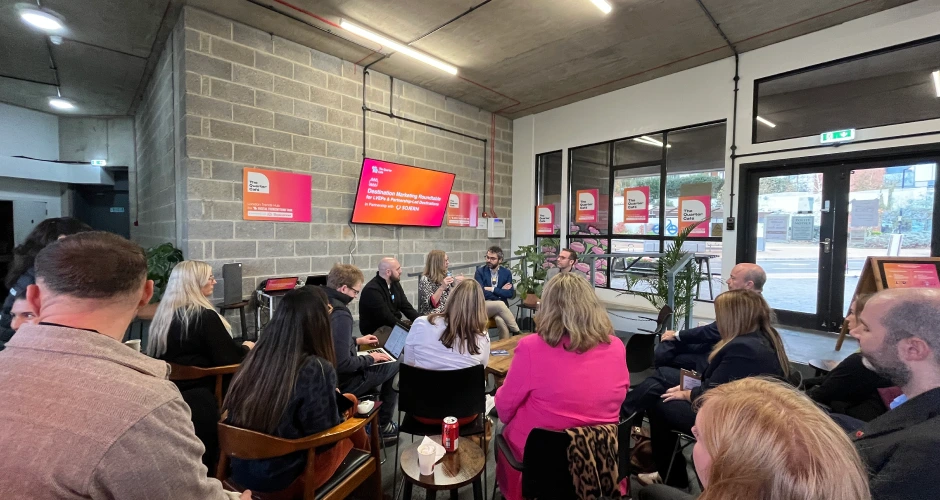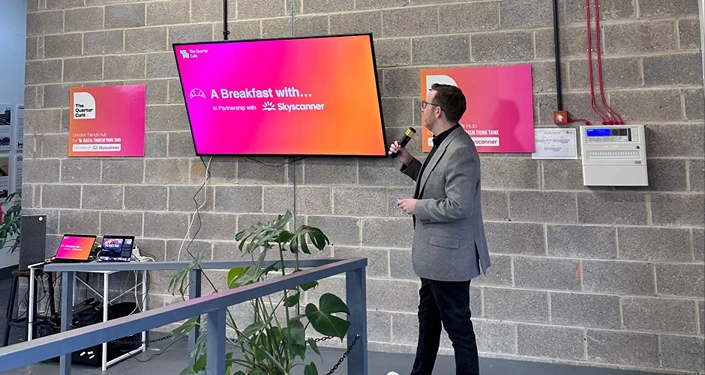In episode 2 of our "Tour Tech: Your 5 Weekly Takeaways to Tourism Success" podcast series, part of the EU-funded Tourbit project, we learn about how Artificial Intelligence (AI) voicebots can be used by hotels to help them improve operational efficiency and convert consumer interest into bookings by simplifying the process of responding to leads. This article explores the collaboration between Bookline, a conversational AI startup, and Gat Rooms, a hospitality company with properties in Berlin and Lisbon and an upcoming opening in Porto, to improve the hotel company's phone reservation process. It highlights the challenges faced by hotels in managing phone calls, the benefits of using AI-powered voicebots and the key takeaways for small and medium-sized enterprises (SMEs) in the hospitality industry.
Operational Challenges
Eva Llopis, Sales & Marketing Manager at Gat Rooms, describes the difficulties in managing phone calls 24/7, with shifts at different times of the day and staff busy with other tasks and unable to always answer the phone, leaving a bad first customer impression, especially given the increasing demand of customers for immediate service. Post-Covid, it's also particularly challenging to retain talent, with high staff turnover and the need for regular training of new staff. With this in mind, the need to be more agile and efficient is increasingly important, with reservations being made in a shorter booking window and requiring quick responses to avoid losing business.
Eva highlights how Gat Rooms initiated the partnership with Bookline after hearing that the company was looking to expand into the hotel sector after its initial success with restaurant bookings. Seeing the potential to innovate and optimise the reservation process, Gat Rooms collaborated closely with Bookline to test solutions and share the specific challenges faced by hotels. Both companies jointly helped to adapt the solution for the accommodation sector through various rounds of experimentation and feedback to enable it to be adapted to support Gat Rooms' operational processes.
AI-Powered Voicebot Solutions
Joan Salvatella, Co-Founder of Bookline, explains their voicebot solution for answering calls acts as a virtual reservation agent, gathering lead information and even automatically sending WhatsApp messages to customers with a link to the booking engine with all booking information already filled out. This ensures that no calls are missed and guests receive a personalised experience, making sure that potential clients can effortlessly interact and book services regardless of their time zone or location. Bookline is currently compatible with over 15 of the leading booking engines and constantly making connections to more platforms to help the company serve any hotel.
Collecting this information also supports Gat Rooms' reservation agents, who receive automated emails of all customer interactions with the voicebot, to react to the interest in the hotel by calling potential customers back to encourage them to make a reservation and provide any additional support where necessary. The technological solution can be applied simply, without the need for extensive staff training. Nevertheless, it does require adaptations to organisational processes to ensure a systematic approach to interacting and responding to all lead emails and making sure that every person who is interested in coming to the hotel gets the reservation that they want.
Frequently asked questions are also identified regularly, to continuously train the AI system to deliver answers to more granular questions. If a new question is asked, the voicebot attempts to transfer the call directly to someone on the front desk to give a clear response, but if no one is available, the question is noted down to enable follow-up once a member of staff is free. Similarly, if customers don't want to talk to an AI tool, the call will be transferred to the hotel reservations department, with technology as an enabler and not replacing the role of humans.
Value Proposition
Utilising AI voicebots to provide immediate customer interactions has numerous benefits for SMEs to improve efficiency and maximise profitability, including:
- Increased Direct Bookings: Gat Rooms has seen a rise in direct bookings since implementing Bookline's AI voicebot, as guests can now complete reservations directly through the provided link. This minimises the number of qualified leads that are lost to online travel agents and maximises revenue.
- Improved Guest Satisfaction: Guests receive immediate attention and can communicate in their native language, enhancing their overall experience.
- Reduced Workload: Hotel staff are freed up from handling routine phone calls, allowing them to focus on more complex tasks and guest interaction.
Key Takeaways for SMEs
Technology adds value to businesses and helps them to become more productive. Technology doesn't need to sleep and therefore acts as an enabler in solving business challenges. However, it needs to be implemented in a way that supports existing business processes and can be easily integrated into operational workflows. On the other hand, businesses also need agility to adapt to the new outputs so that technology augments processes.
By integrating technology to boost efficiency, employees are supported in their daily activities and visitor satisfaction improves, especially where AI translation minimises human error and simplifies interactions between customers and businesses. However, it's worth keeping in mind that visitors also shouldn't feel forced to use technologically advanced solutions and should have a choice in how they interact with businesses.
Bookline and Gat Rooms have shown us that tech startups shouldn't be afraid to expand into new industries and build upon their existing product. At the same time, it's important to recognise the need to make adaptions to the offering based on the knowledge of the new industry. Experimentation and testing are essential as plans don't usually work on the first attempt given some of the more subtle differences between industries and the need to better understand specific operational processes. Once developed, digital solutions still need to be continuously improved. Tools such as AI can be enhanced by monitoring search queries and adding additional responses based on frequently asked questions.
Here are the five key takeaways:
- Don't shy away from technologies which are in their very early stages, even if sometimes they initially appear too costly, inaccessible or even too forward-looking.
- Implementing pioneering technologies, such as personalised voicebots, can help to effectively automate cumbersome tasks and overcome operational barriers while still delivering excellent customer service.
- The story behind Bookline and GAT Rooms showcases the importance of building technology partnerships, specifically tailored to the needs of each sector in the tourism and hospitality industry.
- User-friendly experiences don't only apply to user interfaces and are also relevant when considering how to integrate technology into daily workflow processes.
- Innovative uses of technology can enhance sales efforts without displacing existing processes.
The podcast is part of the Tourbit project, co-funded by the EU's COSME programme, with the support of the Catalan Tourist Board, Barcelona Chamber of Commerce, Paris&Co, Arctur Doo, Hub Brussels, Iceland Tourism Cluster, Lapland University of Applied Sciences and NEST - Tourism Innovation Center.






.svg)















.webp)
